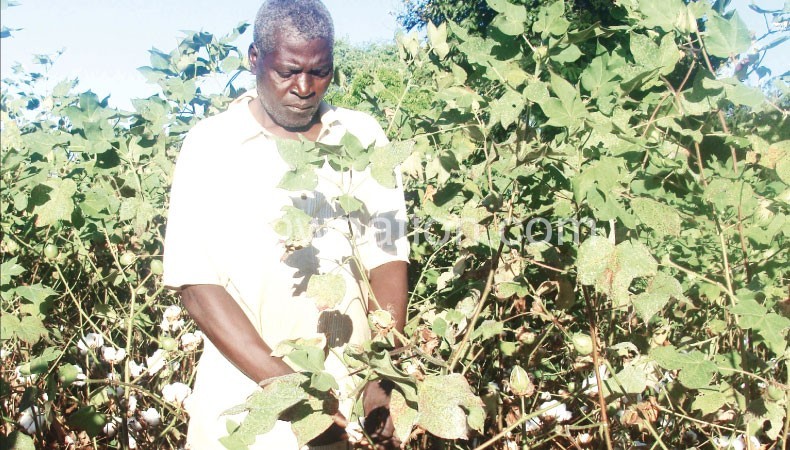‘Time has come for Malawi to discuss GMOs’
Reporter EPHRAIM NYONDO engaged Biosafety registrar CAROLINE THEKA on the steps Malawi will take following the confined field trials of Bt cotton.
We understand that two confined trials of Bt Cotton were concluded. We would like to find out from your office where we are in terms of releasing the Bt Cotton seed to the farmers?

The National Biosafety Regulatory Committee (NBRC) is the legal entity that has the responsibility for assessing biosafety aspects of biotechnologies such as genetic modification and making recommendations to the Minister (of Natural Resources, Energy and Mining) in that regard.
The Department of Environmental Affairs is the secretariat for the NBRC. As such, the two trials that have been conducted so far were testing for safety of the Bt cotton with regard to human health and the environment. At the moment, the secretariat has just received annual reports for the last growing season.
These reports, as well as comments from the public on general release, will form part of the documents that will be evaluated by the committee as it is evaluating the application. The committee makes a recommendation to the minister on its decision and if a licence is issued then the applicant is required to go to the Ministry of Agriculture for further analysis, as this is an agricultural crop. The Ministry of Agriculture will, after its analysis in accordance with its legislation, make a decision on whether or not to release the crop to farmers.
Issues of genetically modified organisms (GMOs) are always divisive in terms of their acceptability among various stakeholders. Already, there are some civil society organisations which have requested your office not to release the Bt cotton seed. How are you dealing with these issues?
Regulation 14 of the Biosafety (Management of Genetically Modified Organisms) Regulations of 2007 requires an applicant who has been granted a licence or permit under the Act and who proposes to release genetically modified organisms into the environment to submit an application to the Minister using a prescribed form and to publish information about the application in two widely circulating newspapers. The public is given 30 days to submit comments on the application to the Biosafety Registrar’s office. When the NBRC reviews the application, it takes into consideration all comments from the public before it makes a decision, and this is also the case with the Bt cotton application. Therefore, all submissions made by the public are dealt with in accordance with the Act and the regulations.
In terms of enforcing regulations on biotechnology, mostly GMOs, from the context of your office, what do you think are some of the key challenges and how do you think such challenges can be dealt with?
The biggest challenge is lack of understanding of the regulatory systems currently in place, and the roles and responsibilities of different stakeholders. In order to overcome this, public awareness needs to be carried out to the various key players such as policy makers, researchers, CSOs and the general public.
Anything you may wish to add which you find is critical for the nation in this debate on GMOs?
We would like the public to understand that the application for general release does not mean that Malawi will soon be selling GM crops. There are procedures under legislation that an applicant will have to comply with. In Malawi, in order to commercially release (to sell or grow commercially) a genetically modified plant variety, an applicant must obtain licences from two institutions. The first license for general release of the genetically modified organism must be obtained under the provisions of the Biosafety Act 2002 and the Biosafety (Management of Genetically Modified Organisms) Regulations 2007. The other licence is for plant varieties that contain the trait for commercial production. This has to be obtained from the Ministry of Agriculture. Time has come for Malawi to discuss such critical issues, considering that we live in a global society, and the decisions we take as a country have a bearing not only on the current generation, but the future as well, and such decisions should be carried out within the context of the laws and regulations in place.





